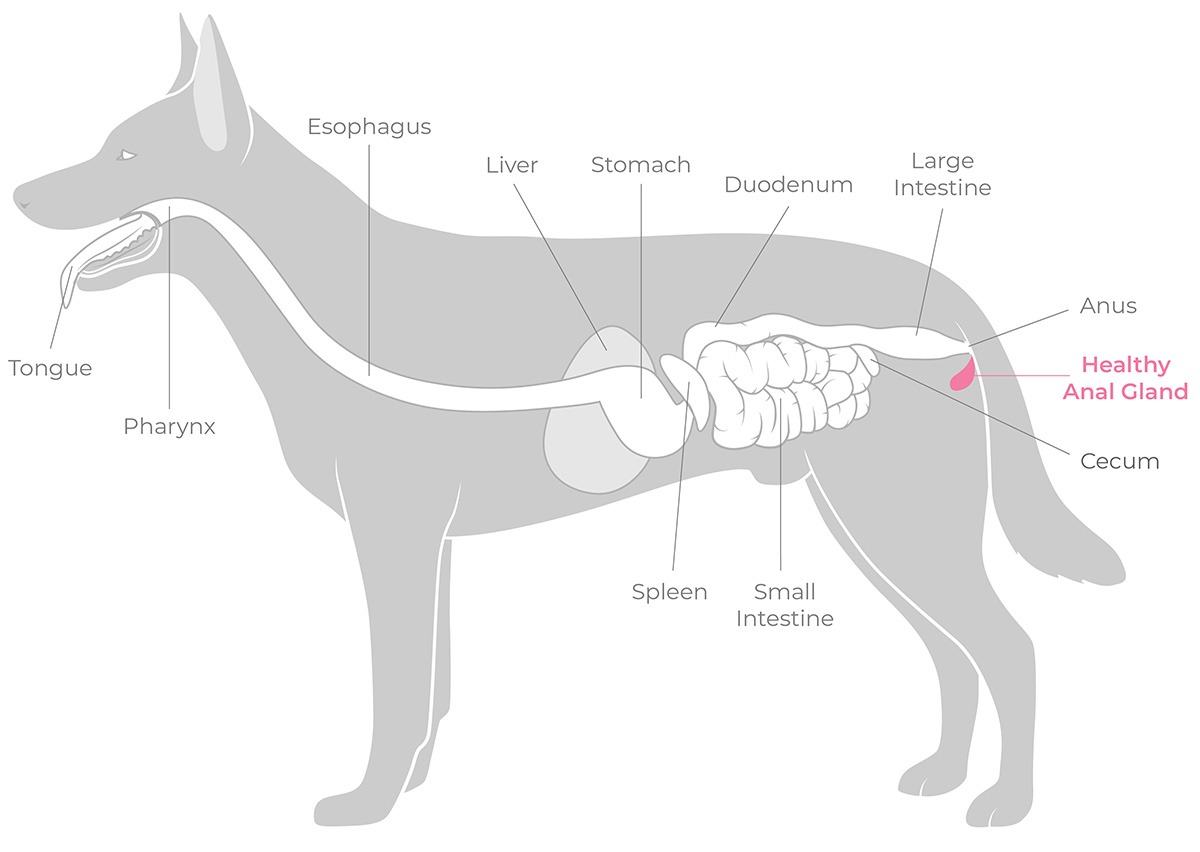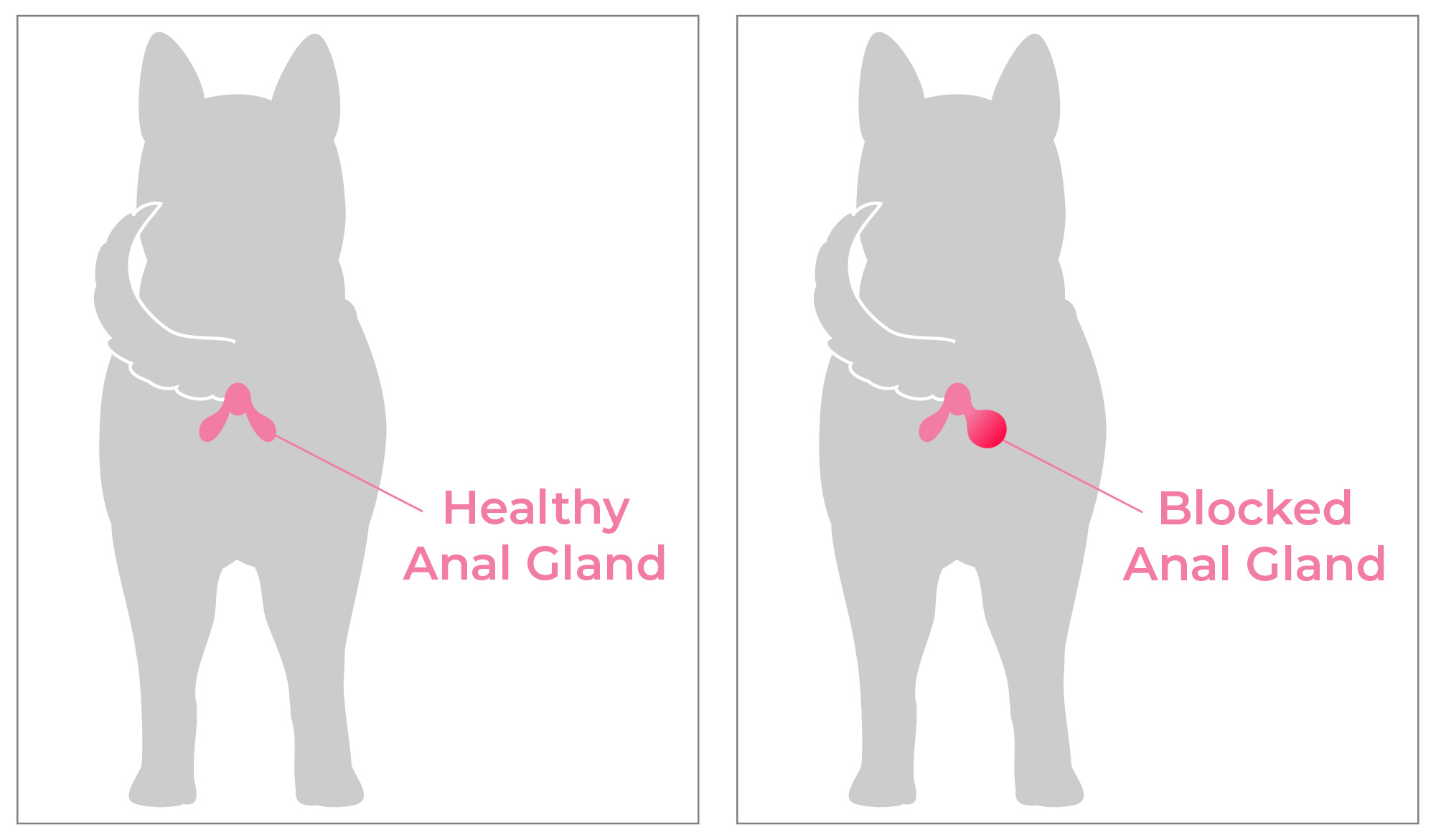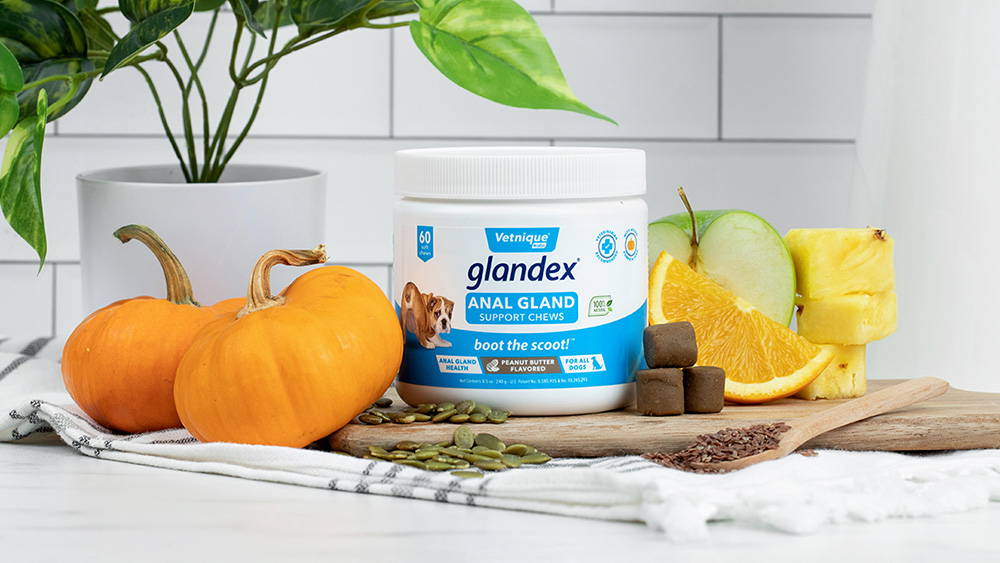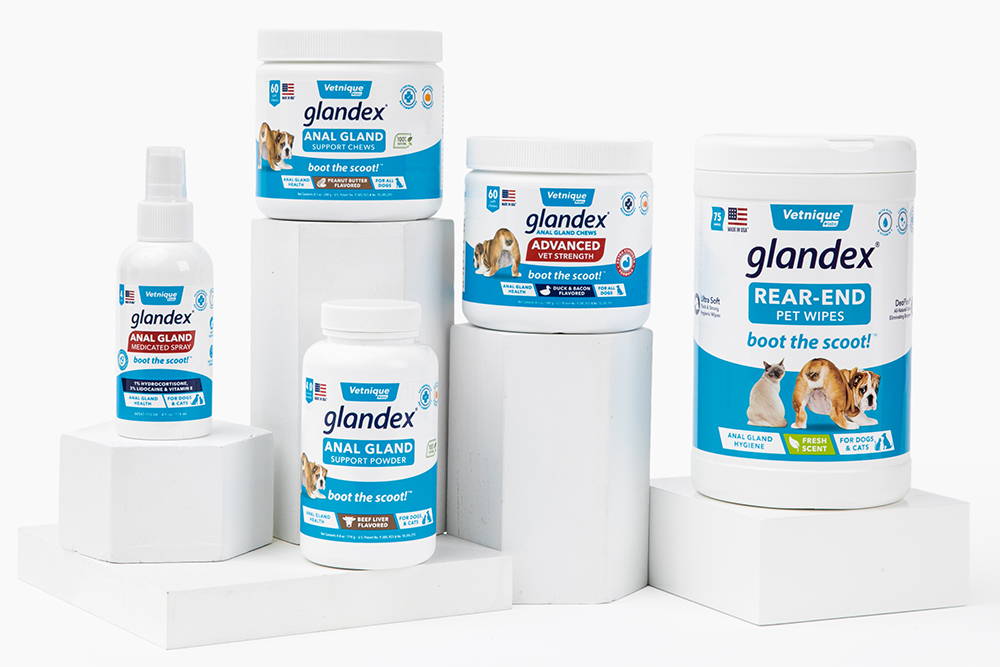Natural Ways to Promote Dog Anal Gland Expression
Written by Dr. James Bascharon

Discovering how to naturally aid dogs in expressing their anal glands can spare both your wallet and your furry companion discomfort. Veterinary visits for gland expression can be minimized by encouraging dogs to express their glands during regular bowel movements. By employing these effective methods, you can alleviate anal gland discomfort in the comfort of your own home.
Understanding Dog Anal Glands
A dog's anal glands are positioned at the 4 and 8 o'clock positions within the anal cavity. While they are not visible externally, they serve the crucial function of secreting a liquid that identifies the dog to other animals and marks its territory. Ideally, these glands should empty naturally during bowel movements. However, when stools are inadequately formed, the anal glands can become impacted.


Common Causes of Anal Gland Impaction
Stool Consistency: Small, soft, or watery stools, such as in cases of diarrhea, can hinder natural gland expression.
Lack of Activity: A sedentary lifestyle or insufficient exercise can affect proper gland emptying.
Inflammation: Food or environmental allergies can lead to gland inflammation
Compact Anatomy: Smaller breeds with compact anatomy, such as Pugs, Toy and Miniature Poodles, and Cocker Spaniels, are more susceptible to anal gland issues.
Promoting Natural Gland Expression

Fiber Supplements
Administering fiber supplements like Glandex can help prevent anal gland impactions, particularly for small breeds or dogs prone to frequent issues. Opt for veterinarian-approved fiber supplements to bolster stool consistency and support natural expression.
Fiber-Rich Ingredients
Incorporate natural sources of fiber, like Apple, Flax Seed, Rice Bran, and Pumpkin, into your dog's diet. A well-balanced mix of soluble and insoluble fiber can keep stools bulky and firm, encouraging regular gland emptying.
Fresh Foods
Fresh food diets, including cooked chicken, beef, carrots, peas, and fruits like apples and blueberries, promote a healthy gut and improved digestion. Consult your veterinarian for suitable recipes tailored to your dog's specific needs.
Adequate Hydration
Ensure your dog drinks sufficient clean, fresh water to aid in flushing roughage through the digestive system and facilitate natural gland expression. Aim for approximately 1 oz of water per pound of body weight daily.
Regular Exercise
Keeping your dog physically active boosts digestion by enhancing motility. Daily walks, indoor or outdoor play, swimming, and hiking are excellent ways to keep your furry companion active and healthy.
Manage Diarrhea
Combat diarrhea symptoms promptly, as they are a common cause of anal gland impactions. High-quality fiber supplements with probiotics can help restore gut balance and promote healthy stools.
Alleviating Dog Anal Gland Discomfort
If your dog is already experiencing discomfort from overfull anal glands, consider the following measures until you can schedule a vet visit for manual expression:
Digestive Support: Provide anal gland supplements like Glandex soft chews with digestive enzymes and probiotics to ease digestive discomfort.
Hygienic Care: Keep the rear end clean using hygienic wipes to reduce skin irritation and neutralize odors.
Topical Relief: Apply a topical spray containing anti-inflammatory ingredients like Hydrocortisone to alleviate pain, itching, and discomfort.
Warm Compress: Try a DIY warm compress with Calendula essential oil and warm water on the affected area for soothing relief.
Proper Manual Expression
Manual expression of anal glands should only be performed by a trained professional or your veterinarian. Relying solely on manual expression can be detrimental, and it is best to encourage natural expression through regular bowel movements.
Neglecting anal gland issues can lead to pain, discomfort, and messy household accidents. If you notice signs of impaction, promptly contact your vet to address the problem and ensure your pet's well-being.
Remember, promoting natural anal gland expression through dietary and lifestyle adjustments can lead to a healthier and happier furry companion!
How to Express Your Dog's Anal Glands
In the video below, Dr. James Bascharon will equip you with the essential knowledge and techniques to ensure your furry friend's comfort and well-being. Save on frequent vet visits and become a confident pet owner with our step-by-step guide. Let's dive in and learn how to provide your dog with the best care possible!
Reduce expensive vet visits and try Glandex today.
Boot the Scoot™ with Glandex
Daily Supplements
Daily Powders
Medicated Sprays
Read End Wipes

Money-Back Guarantee









